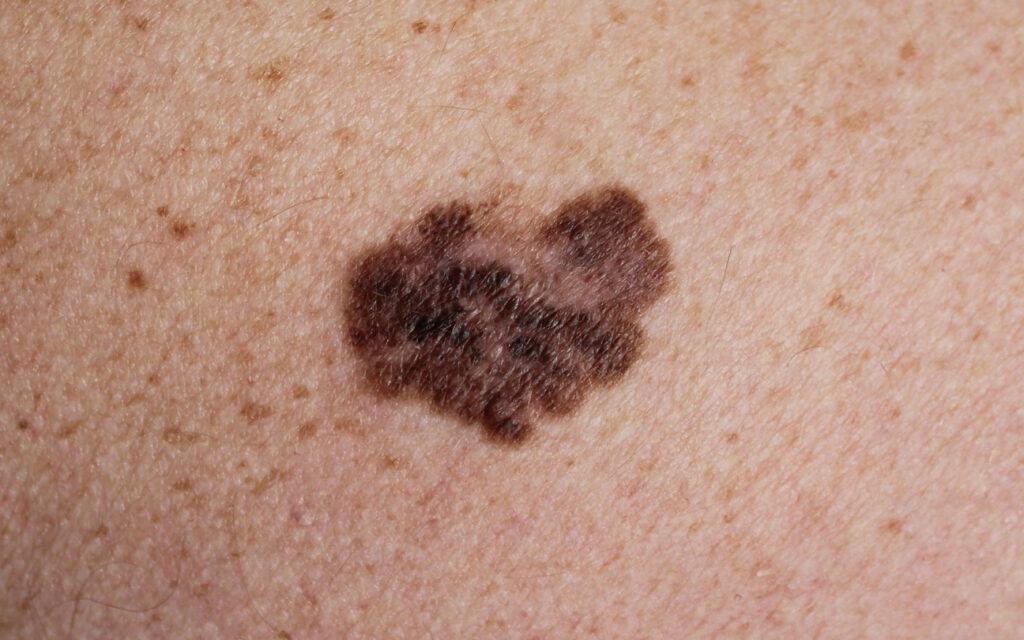A combination of immunotherapy drugs may help prevent skin cancer metastasis among kidney transplant patients without not damaging the transplanted kidneys, a new study suggests.
In a multicenter phase I/II study of eight patients, every patient experienced skin cancer disease progression while taking two immune-suppressing drugs and one checkpoint inhibitor. However, after adding a second checkpoint inhibitor to the regimen, two of six patients experienced a complete response, meaning their tumors fully regressed.
The Experimental Therapeutics Clinical Trials Network (ETCTN) trial included eight patients with advanced melanoma, cutaneous squamous cell carcinoma, or Merkel cell carcinoma who had previously received standard, non-immune-based therapies or were ineligible for them. All participants had previously received a kidney transplant and had adequate kidney function when they enrolled in the study. The average time from kidney transplantation to trial initiation was 13 years. All patients agreed to undergo dialysis in the event of kidney failure caused by the treatment regimen.
Participants received a standard immunosuppressive regimen of low-dose tacrolimus and prednisone. After investigators confirmed that kidney function was stable on the regimen, they added the immune checkpoint inhibitor nivolumab (Opdivo, Bristol-Myers Squibb Company), which inhibits the PD-1 protein and is U.S. Food and Drug Administration(FDA)-approved for treating patients with melanoma and other types of cancer. All eight patients experienced progressive disease. Investigators then added a second checkpoint inhibitor, the CTLA-4 inhibitor ipilimumab (Yervoy, Bristol-Myers Squibb Company), to the existing three-drug regimen in six patients.
Investigators performed tumor biopsies to assess immune response before and after receiving nivolumab. All but one initial tumor biopsy showed a near-complete absence of infiltrating immune cells, indicating that patients’ immune systems were essentially inactive against the cancer. Of five biopsies taken while patients were receiving nivolumab, two showed moderate immune infiltrates, indicating that the immune system had begun to attack the skin cancer. Both patients later had a complete response when investigators added ipilimumab to the nivolumab.
“To our knowledge, this study is the first to prospectively test whether low-dose tacrolimus and prednisone can preserve a patient’s transplanted kidney while also allowing immune checkpoint inhibitor-mediated tumor regression in kidney transplant recipients with advanced skin cancers,” says senior author and principal investigator Evan Lipson, MD, an Associate Professor of Oncology at the Johns Hopkins University School of Medicine and Kimmel Cancer Center in Baltimore, in a news release. “These results provide important insights into the effects of this combination of therapies on the immune system and help us better understand how to monitor the health of the transplanted organ as patients receive these medicines.”
The researchers also measured donor-derived cell-free DNA levels every two weeks to study feasibility as a potential predictor of graft rejection. Donor-derived cell-free DNA is a quantitative, blood-based marker of graft rejection used to monitor graft health in the non-oncology post-transplant setting, but its utility in the oncology setting with kidney transplant recipients is largely unknown.
The study did not meet its primary composite endpoint of partial or complete tumor response or stable disease without graft loss after 16 weeks. Three patients experienced treatment-related graft loss at different points during the trial.
“The immune suppression we chose prevented nivolumab (anti-PD-1) from working at full effectiveness but didn’t fully protect the kidney either,” he says. “We also learned that the immune system really started attacking cancer only when we added the second checkpoint inhibitor.”
Another important finding, in two of the three patients whose transplanted kidneys were damaged because of the trial medications, was that donor-derived cell-free DNA levels increased 10 and 15 days before increases in serum creatinine. “Going forward, this knowledge may help us intervene earlier and better preserve the transplanted organ, a precious resource,” Lipson adds.
The study team has already begun work on a follow-up trial that will pair prednisone with the immunosuppressive drug sirolimus in addition to the two immune checkpoint inhibitors, nivolumab and ipilimumab, given concurrently. “The completed study introduced two checkpoint inhibitors sequentially because we didn’t want to risk overstimulating the patient’s immune system and harm the transplanted organ,” Lipson said. “But some cutaneous tumors grow so quickly we can’t wait to give a second immunotherapy drug months after starting a first.”
The study is published in the Journal of Clinical Oncology.


